
The impossible has long ago become possible. We can fly. We can communicate across great distances. We can cure many illnesses and have long ago started dabbling with the creation of life itself. The digital revolution is changing how we live, experience our identity, and understand reality. As technology is transforming our lives, we seem to have caught a serious case of vertigo. Are we turning into gods or are we in the process of making ourselves redundant? Posthumanism is a philosophical framework that asks the deeper question of what we mean when we say “we.” Could posthumanism be the philosophy for the 21st century?
What is posthumanism?
Is posthumanism a philosophical theory, a method of analysis or merely a way of describing the condition of our current (and future) world? Posthumanism is difficult to define.
Broadly speaking, posthumanism is a philosophical framework that questions the primacy of the human and the necessity of the human as a category. While humanism appeals to our shared humanity as a basis for creating community, posthumanism criticizes this way of thinking as being limited and full of implicit biases. Some posthuman philosophers even claim that humanism is not only false, but downright destructive.
This may seem counterintuitive at first: the terms ‘humanism’ and ‘shared humanity’ remind us of things like progress, equality and human rights. Why should we let go of this way of thinking? Let’s look at some of the arguments. Posthuman philosophy criticises the idea of “the human” on multiple counts. Here are the most important arguments.

Get the latest articles delivered to your inbox
Sign up to our Free Weekly Newsletter
1. When we say ‘human,’ we don’t really mean ALL humans

Posthuman thinkers believe that the concept of ‘the human’ is in fact intertwined with things like colonialism, sexism, and racism. While an appeal to our shared humanity may be beautiful in theory, a brief look at history shows a different story. The idea of ‘the human’ has historically been used to oppress whoever (and whatever) was considered ‘nonhuman.’ The philosopher Rosi Braidotti makes the point that our understanding of ‘the human’ is based on the concept of Da Vinci’s Vitruvian Man, 1490. She argues that slaves, native populations, and women were historically excluded from the category of what she calls “fully human.” Consequently, they were barred from enjoying equal rights with the white male. Humanism is therefore far from innocent: It comes with the baggage of Western supremacy, patriarchy, and oppression.
Da Vinci’s Vitruvian Man is a well-known symbol of humanism. Postcolonial and feminist philosophers have criticised this view and artists like Harmonia Rosales are subverting this in their artwork. Check out our articles on Women in Performance Art and Unknown Female Artists to find out more about women in the art world.
2. We are not as special as we think
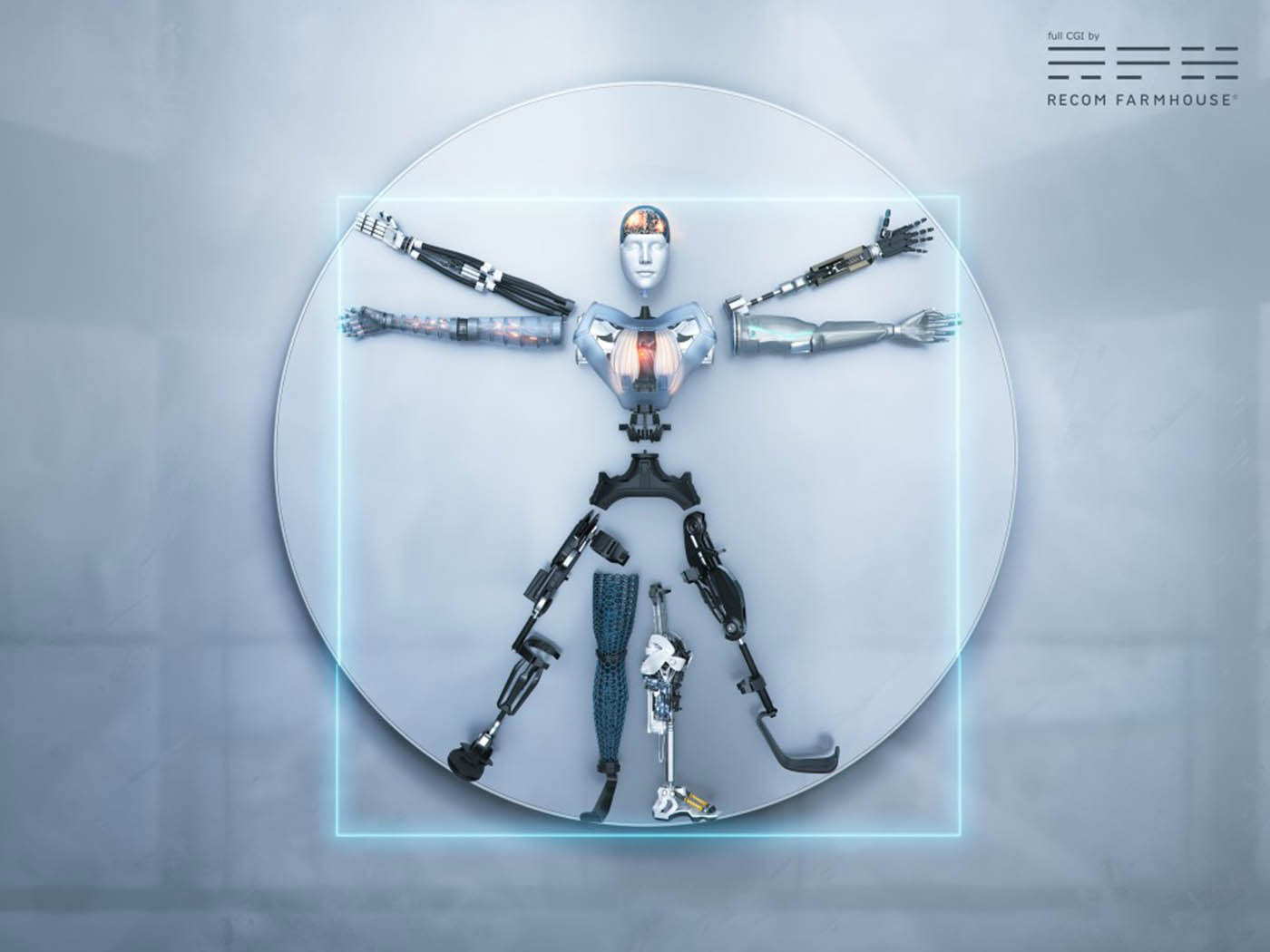
While it is a commonly accepted fact that humans are essentially animals, we continue to place ourselves in opposition to animals and other life-forms. Posthumanism suggests that we should stop thinking of ourselves as superior to the rest of the planet and accept that we are part of nature. After all, science has long ago proven that we share over 90% percent of DNA with apes. Recent discoveries have shown that we have a lot more in common with plants and mushrooms than we may think.
Sounds crazy? In fact, this idea isn’t new at all…

Wild vertebrae /Radiography in Lightbox, Nunzio Paci 2018, via artist’s website
Wild clavicula / Radiography in Lightbox, Nunzio Paci, 2021, via artist’s website
Long before Darwin, in 1748 the materialist thinker Julien Offray de La Mettrie published the highly entertaining essay Machine Man. While the essay (in which he likens humans to animals, machines, and plants) was highly controversial at the time, later scientific discoveries have proven many of his claims to be right.

But the idea that we are nothing more than “a walking plant” (De La Mettrie) goes back even further: The brotherhood of humans, animals, plants (and everything else) is deeply rooted in the cosmologies of many aboriginal tribes and natural religions:
“We are part of the earth and it is part of us. The perfumed flowers are our sisters. The bear, the deer, the great eagle, these are our brothers. The rocky crests, the dew in the meadow, the body heat of the pony, and man all belong to the same family.”
(Chief Seattle, 1854)
Posthumanism asks us to remember our true place in the world: we are an integral part of nature.

It can be argued that humanism is the ideological basis for the exploitation of our planet: if we see ourselves as separate from (and superior to) the natural world, we don’t have to feel so bad about exploiting and mistreating other lifeforms. But the natural world isn’t the only victim of this mindset – a worldview that separates us from the rest of the world also causes damage to our own psychological well-being. Seeing ourselves as ‘outside nature’ contributes to the feeling of fragmentation and alienation that pervades the postmodern condition.
Embracing posthumanism could heal the perceived gap between the human and non-human. It could therefore help us connect more deeply to ourselves, each other, and the world around us.
But there is a price to pay: if we want to heal our relationship with the natural world, we have to let go of the idea that we are ‘different’ or ‘special.’ The posthuman decentralisation of the human requires us to release our sense of self-importance and embrace the interconnectivity and interdependence of everything. This shift in perspective may inspire us to finally take serious action in slowing down the extinction of animals and the destruction of ecosystems. A more inclusive posthuman perspective could therefore help us in facing complex global problems like the climate crisis.
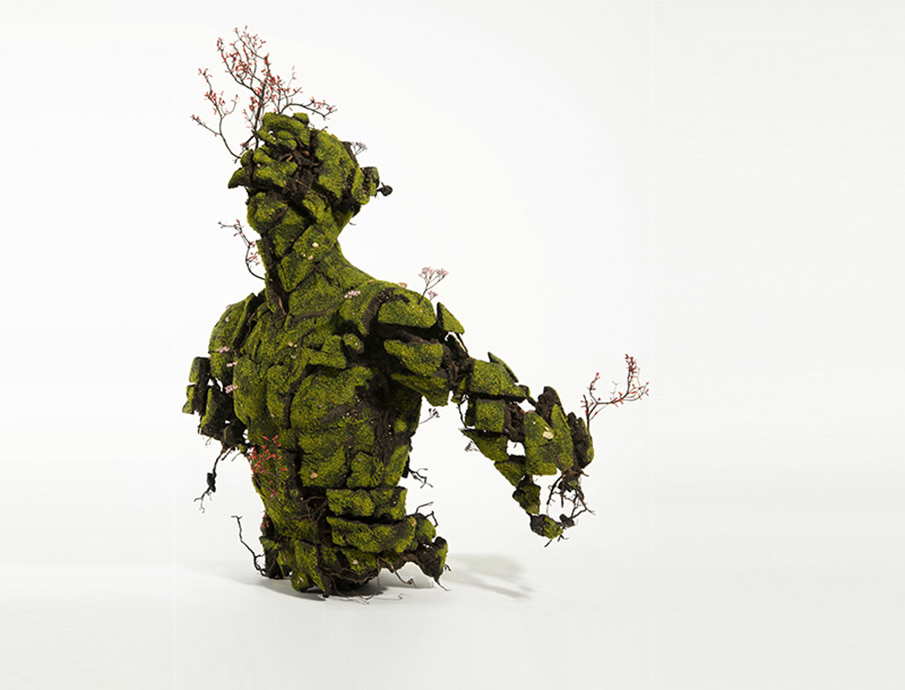
3. Humanism is too old-school for the 21st century

New times require new ways of thinking. While humanism may have been an appropriate philosophy for the Renaissance, the challenges of the 21st century confront us with new questions and dilemmas. Can a posthuman philosophy help us navigate this brave new world?
We live in an age of AI, algorithms, robotics, and genetic manipulation. Wars are no longer fought by human agents alone. Technologies such as bomb disposal robots and drones help to save and destroy human lives. But what are the ethical implications of taking the human soldier out of the war zone? Will replacing human soldiers with robot soldiers decrease or increase the havoc of war?
While an army of robots sounds like a science-fiction nightmare, some theorists argue that killer-robots may in fact behave more humanely than human soldiers. A robot army is unlikely to pillage and rape – unless they are programmed to do so. On the other hand, they are also less likely to show human compassion. Or could we program machines to be more compassionate than humans? The ethics of programming is only one of the many challenges we have to face in the 21st century…

War and destruction
The past century has shown the vastness of the damage technologies can inflict: the scale of destruction and amount of suffering of the two world wars is still part of our collective trauma. More recently, the Syrian war has shown us the cruelty of humans and the devastation caused by remotely controlled drone strikes.
Taking a posthuman perspective, we may start by asking a deeper question: why do we continue to associate the word ‘humane’ with lack of cruelty? After all, no animal is as cruel and destructive as the human animal. We need to take a good look in the mirror and ask ourselves whether ‘the human’ should really be used as an ethical standard.
Likewise, we must face the even more difficult ethical question of whether the preservation of the human should always be put above all else. Does the saving of human lives justify the destruction of our planet and the killing of other animals?

New technologies
While war is a big driver of technological innovation, it isn’t the only area that is being revolutionized by new technology. The advances of the past century have also enabled us to improve, prolong and save the lives of millions of people.
Whether we like where our world is going or not, it is impossible to halt the clock of technological progress. We have already surpassed the question of whether technology is ‘good’ or ‘bad.’ Instead, we urgently need ethical frameworks that help us deal with the more complex question of how.
How should technology be programmed, who should do the programming, how can it be regulated and what happens if there is a bug in the system?
A posthuman ethics could give us vantage points for dealing with such questions.

And this is only the beginning of it. How do we deal with the ethics surrounding human enhancement, cloning and DNA manipulation?
Advanced technologies and virtual realities are an integral part of our lives. Digital devices have already merged with our bodies in multiple ways: phones and computers are increasingly replacing (and upgrading) the functions of our eyes, ears, mouths and brains. They allow us to outsource our memories, communicate with others and see into faraway places and times. Technology allows us to transcend our human limitations. Smartphones have long ago become part of our extended self. We are finding ourselves increasingly dependent on the technologies we own.
To the philosopher Donna Haraway this is hardly surprising:
“We are all chimeras, theorized and fabricated hybrids of machine and organism; in short, we are cyborgs.”
(Cyborg Manifesto, 1985)
The separation between humans and machines has disintegrated. Old definitions of human no longer apply. Humanism, so the posthuman argument goes, is an outdated concept that is useless for making sense of our posthuman condition.

And it looks that the boundary between the human and machine will only continue to dissolve.
The posthuman thinker Yuval Noah Harari predicts that we will “upgrade [ourselves] step by step, merging with robots and computers in the process,” (2015, Homo Deus). According to Harari, we have long ago replaced the belief in God with a belief in human progress and the sanctity of human life.
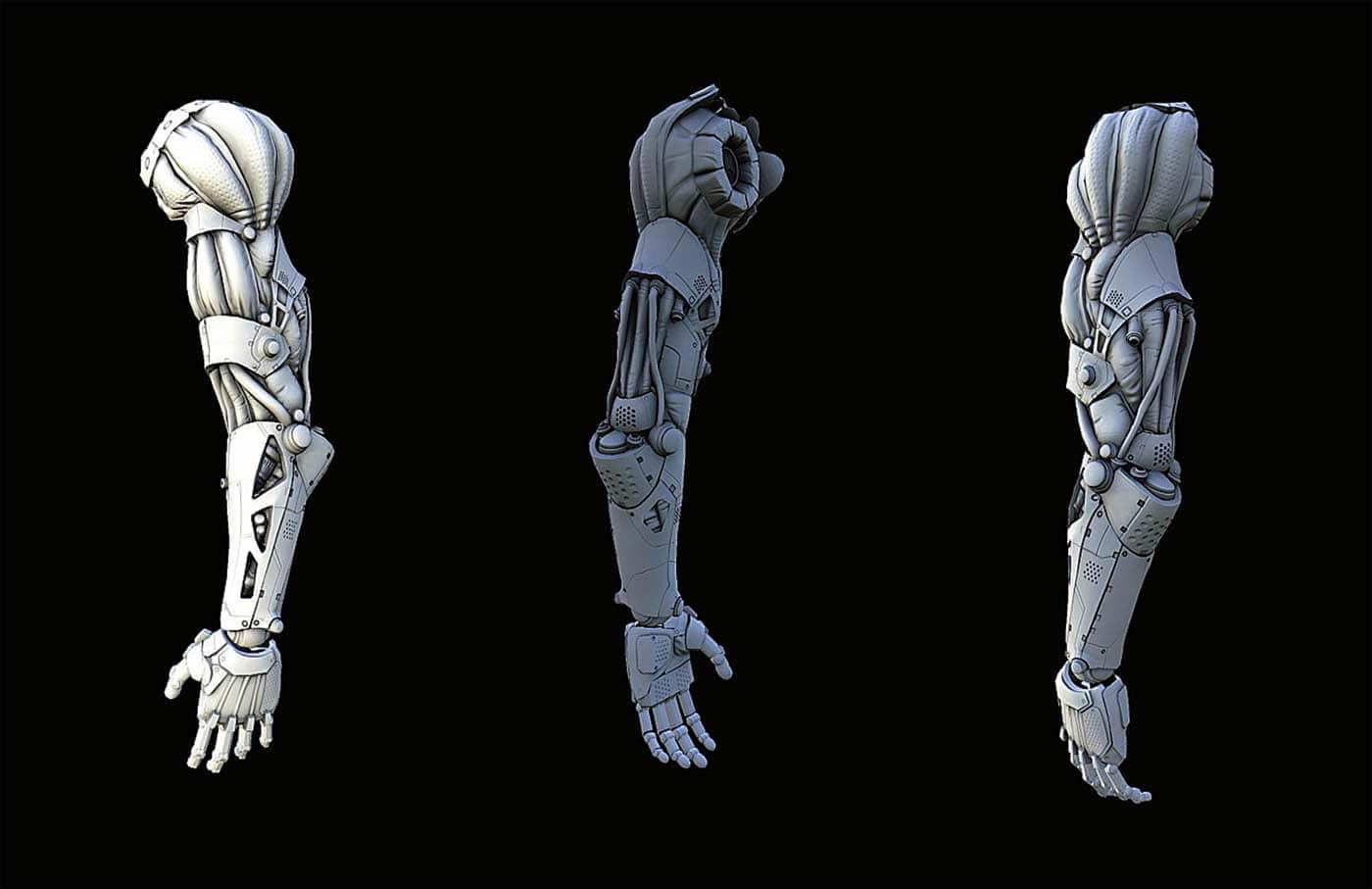
“In the twenty-first century, the third big project of humankind will be to acquire for us divine powers of creation and destruction, and upgrade Homo Sapiens into Homo Deus”
(Harari, 2015)
Does that sound like science fiction? In 2013, Google publicly announced that they aim to “solve death.” In Harari’s view, our quest for immortality is simply a logical consequence of our ever-growing powers. If we combine this with the belief that “man is the measure of all things” (a sentence attributed to the Greek philosopher Protagoras), we have given ourselves the go ahead for an upgrade into divinity.
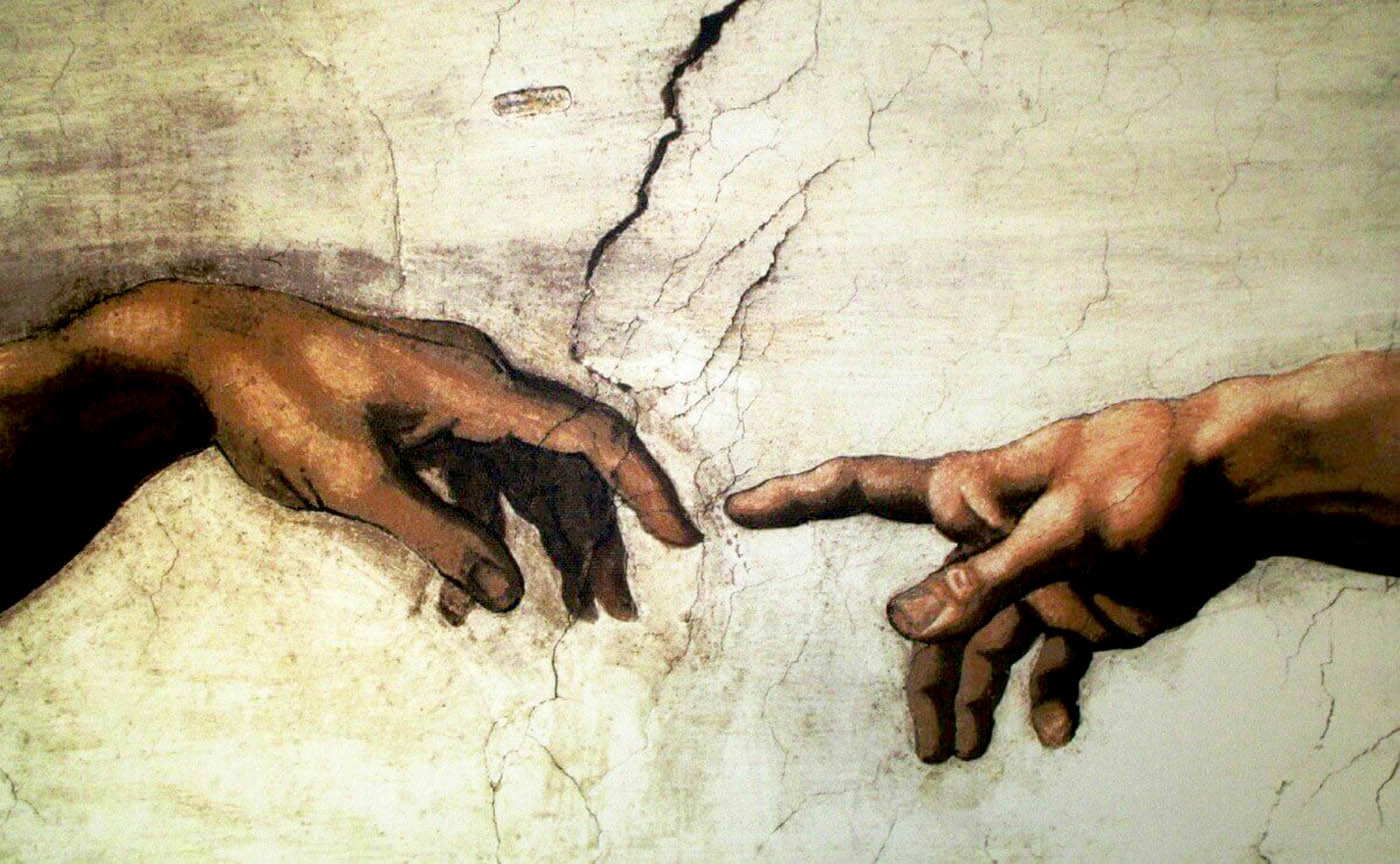
Growing Power
While we have not achieved immortality yet, and the COVID-19 crisis has reminded us of our all too human vulnerability, our growing power confronts us with new ethical dilemmas: 2018 saw the birth of the first gene-edited babies. The responsible scientist was given a prison sentence for his Frankensteinian transgression, but the babies remain part of our posthuman reality. The knowledge enabling us to play God is already out there. Whether we like it or not, we cannot stop these advances. It is impossible to put the genie back in the box. The boundary between the human and the non-human has already disappeared and it looks like it will only continue to dissolve.
Human enhancement brings up difficult ethical and philosophical questions. Will these changes turn us into Gods, or will they turn us into monsters? If we manage to solve the last secrets of life and death, will our immortality amount to our own annihilation?
Our condition today
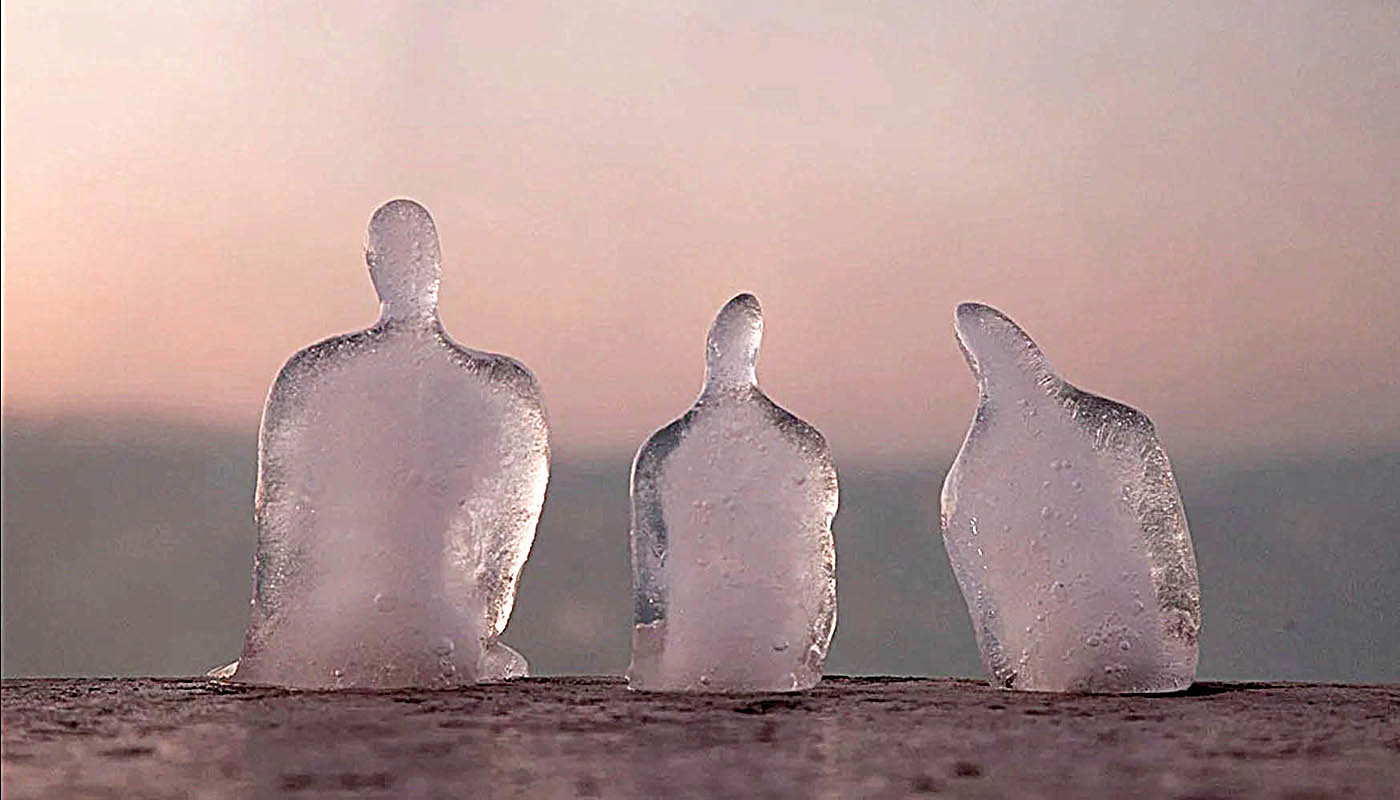
The critique of humanism suggests that we already live in a posthuman reality. But why is it so difficult to truly integrate this way of thinking into our worldview?
Our human identity is a key part of our sense of self, and humanism the ideological ground of a capitalist Western-dominated world. Letting humanism go requires us to let go of our ego. It requires us to let go of our sense of self-importance. It would also force us to face some uncomfortable truths about the way we have treated each other and the planet.
The posthuman condition is a paradoxical one. We have created the conditions of our own undoing. As we acquire greater powers through scientific discovery and technology we also fall into ever-greater danger of making ourselves disappear. The reality we are creating also creates us. There is no ‘us’ and ‘the outside world,’ no subject-object dichotomy. We are the creators and the creatures of the posthuman condition. We are Frankenstein and the monster.
Embracing posthumanism means to step off our self-made pedestal. But letting go of the human also requires us to step up: great power comes with great responsibility. While a posthuman perspective requires humility, it also urges us to step up to the challenges we have created for ourselves. It is a stepping up and a stepping down.
Are we ready to embrace posthumanism?

Does accepting our status as animals and eradicating our pretensions of being outside nature empower or disempower us? If we were to ‘upgrade’ ourselves into immortal beings, would these beings still be considered human? Or would genetic enhancement make us lose our humanity? All this boils down to the following question: What are we really trying to hold on to when we hold on to ‘the human’ in us?
Philosophical posthumanism suggests that the reason these questions provoke so much unease is because we are still stuck in the old way of thinking. It is extremely difficult to let go of a worldview that is so deeply ingrained. But is it even possible to let it go?
Some posthuman thinkers would argue that we don’t have to let anything go. Instead, we simply have to remember where we came from. The task is therefore much less daunting than we may think. All we need to do is accept what is already there. We are animals. We are nature. We are cyborgs.
What we need is a paradigm-shift. It would not be the first paradigm shift in human history: when Copernicus first suggested that the sun was the centre of the universe, his theory was largely dismissed and ignored. Less than a century later, the invention of the telescope allowed Galileo Galilei to prove the heliocentric model of the solar system right. Today, even primary school kids know that the earth revolves around the sun.








